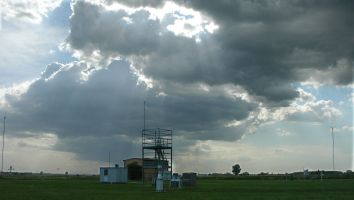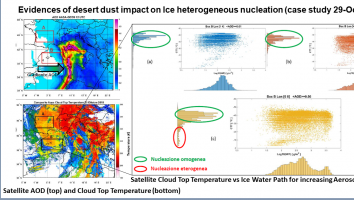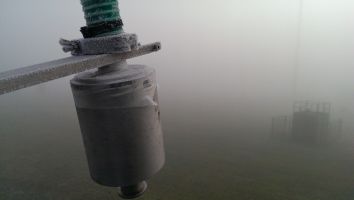A large fraction of the uncertainty about the climate impacts of natural and anthropogenic emissions in the atmosphere resides in the complexity of aerosol effects and related feedbacks on radiation through cloud formation, lifetime and precipitation.
ISAC contributes to the international research efforts to constrain the uncertainty in aerosol climate effects by performing process studies on microphysical cloud droplet activation and by dedicated studies focusing on different cloud regimes ranging from radiative fogs to synoptic-scale cyclones.
Research on the natural and anthropogenic sources of aerosols acting as CCN and IN is pursued. The ways in which aerosol scattering and absorption properties interact with radiation and in turn impact the radiative balance are also investigated, with a focus on the role of black and brown carbon as well as of mineral dust, over regions largely impacted by pollution, biomass burning or desert dust events (the Mediterranean, the Arctic and high-altitude sites in Europe and central Asia).



